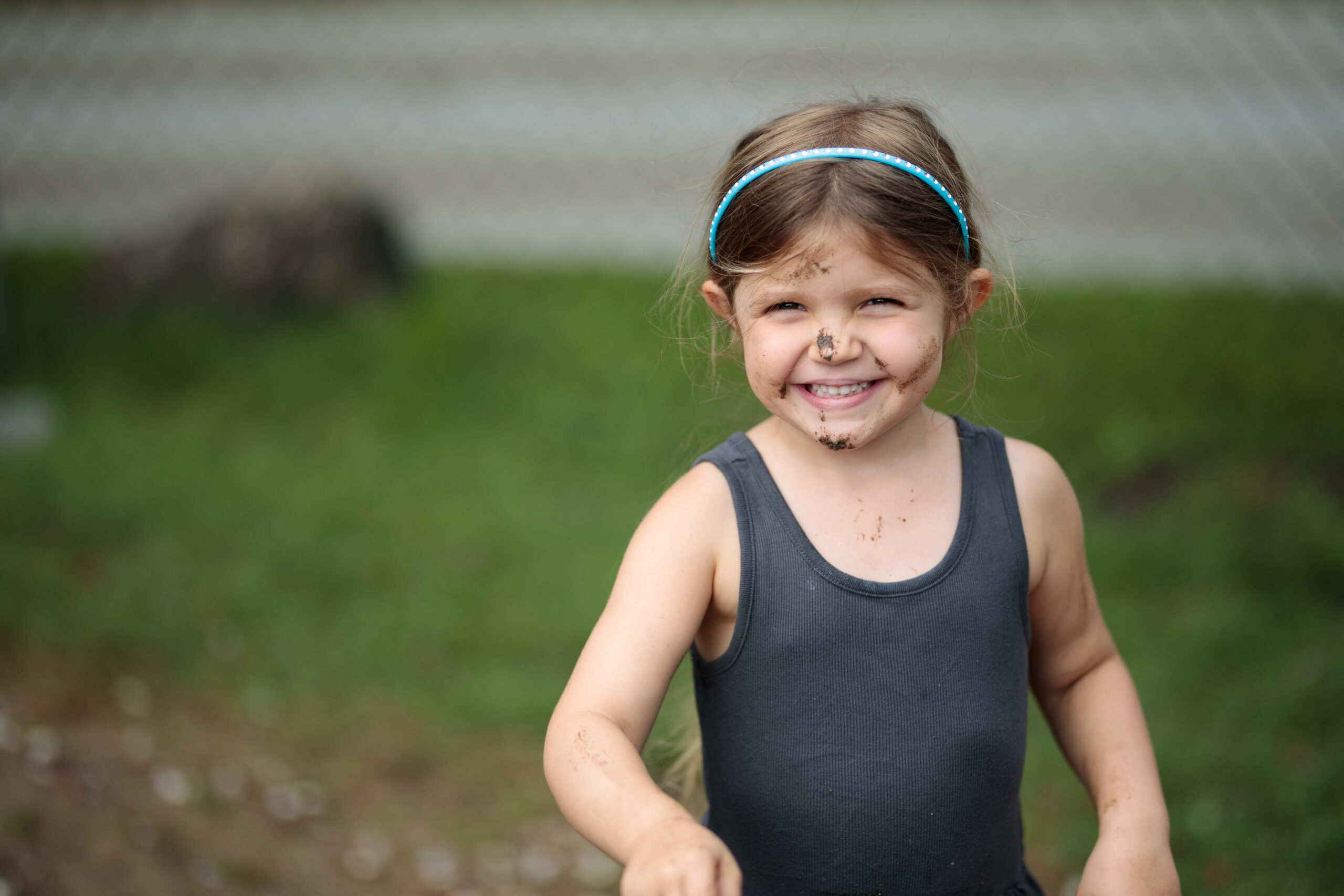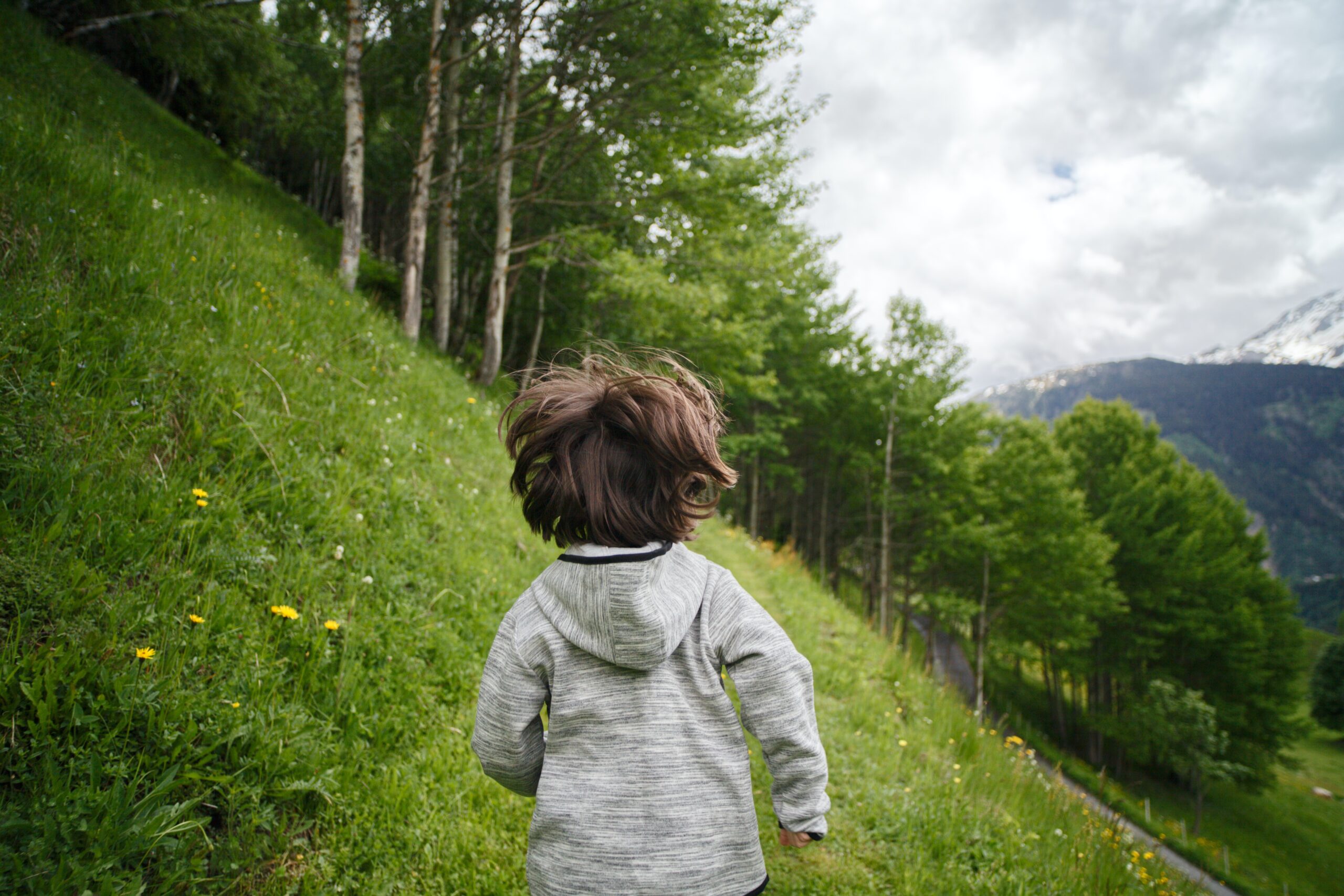By Morgan Leichter-Saxby, VTAEYC Exchange Fellow
It’s different every time and it’s the same, every time.
I have been hosting and supporting public play events for more than 15 years. My training and experience are in a UK-based professional approach known as Playwork, which is distinguished by its non-judgmental, low-interventionist and reflective methods of supporting play for its own sake.
As an individual and co-Founder of Pop-Up Adventure Play I have worked with ECE and family centers, libraries, schools, museums, community farms and parks departments all around the world. We bring ordinary materials such as cardboard boxes, pool noodles, lengths of fabric and clothespins to shared spaces, and invite people of all ages to explore, make, tear, glue and create whatever they can imagine.
Our work centered on children, but over the years it’s become clear how much adults need these opportunities too! Open-ended curiosity is a person’s first way of interacting, exploring, and healing. Messing around with hobbies, hanging out with friends, chilling outdoors are all ways of connecting with other people, places, and ideas. But play is also something most of us are chronically doing without. It’s easy to push aside our own needs, when others need so much.
That may be particularly, or at least specifically, true for early childhood educators. As a field of mostly women, and chronically underpaid, it often feels like there’s a shortage of resources and an abundance of expectation. We might feel (and be encouraged!) to ‘give everything’ in service to others. Is it any wonder that we neglect our own needs, and especially those needs that can feel so frivolous, so self-indulgent, to consider?
For years, I have trained people in how to host public play events. Those trainings include time for participants and volunteers to play. We put out the same recycled and repurposed materials, give the same reassurances of permission. Most adults are a little slower than children to get started, but pretty soon they are making forts and robot costumes, too. Afterwards, they breathe a little easier in their chairs, smile when they catch each other’s eye. They have easier access to the skills they need, to see the playful possibilities around and within themselves.
It’s different every time and it’s the same, every time.
When we play, we explore new ways of being. We turn what we have into what we need. There’s magic in that.
When we play together, we build new relationships and systems. We share resources, and experience something we could never have created alone. That’s how we transform the world.
This post is an encouragement to start within yourself. To give yourself a tiny moment right now, to connect with something you love. That might be a few moments sitting with your eyes closed in the sunshine, or moving to an old favorite song, or taking a picture of something that makes you smile.
Then when you’re ready, to invite someone to share in play with you. With our colleagues, that might include bringing cookies to a post-session meeting, or taking time to celebrate the good days. Playful reflective practice is one way to recenter in our best selves and motivations for this work, to really sit with our experiences and those of others, and to release what we need to come back fresh tomorrow. Feeling supported in having a range of conversations with different audiences helps us all build more complete understandings of our impact on our settings, and our work’s impact on an evolving sense of self. When we are more aware of what we bring and the context we’re in, there are so many more options for response. This work is beautiful, can be very difficult, and doesn’t have to feel lonely.
For group sessions delving into these topics with other practitioners, explore my upcoming workshops. If you want more private resources, try these audio meditations. If you’re thinking bigger, take a look at the Pop-Up Adventure Playground model for building community through play and get in touch that way.
However play is part of your work, and whatever you need to be doing what inspires you, my mission is to support you through play’s processes.
You’re awesome!
Morgan Leichter-Saxby is a VTAEYC Exchange Fellow studying the intersection Our Communities x Young Children, an independent researcher, and a co-founder of Pop Up Adventure Play. Find their workshops on VTAEYC’s events calendar:
- August 30, 6-8 pm Zoom Community: Build, Make, and Play
- September 1, 11 am-noon Zoom Perspective and Perspectives in Sharing Reflective Practice
- September 5, 4-5 pm Zoom, Play & Community Outreach: Hosting Loose Parts Events that Inspire
- September 6, 6-8 pm, Castleton, Play & Community Outreach: Hosting Loose Parts Events that Inspire
- September 7, 6-8 pm, Westminster: Community: Build, Make, and Play
Learn more about the VTAEYC Exchange


